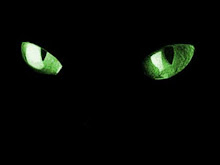The Rastafari movement is a monotheistic, new religious movement that arose in a Christian culture in Jamaica in the 1930s. Its adherents, who worship Haile Selassie I of Ethiopia, former Emperor of Ethiopia (1930–1936 and 1941–1974), as the Second Advent, are known as Rastafarians, or Rastas. The movement is sometimes referred to as "Rastafarianism", but this term is considered derogatory and offensive by some Rastas, who dislike being labelled as an "ism".
Rastafari is not a highly organized religion; it is a movement and an ideology. Many Rastas say that it is not a "religion" at all, but a "Way of Life". Most Rastas do not claim any sect or denomination, and thus encourage one another to find faith and inspiration within themselves, although some do identify strongly with one of the "mansions of Rastafari" — the three most prominent of these being the Nyahbinghi, the Bobo Ashanti and the Twelve Tribes of Israel.
The name Rastafari is taken from Ras Tafari, the pre-regnal title of Haile Selassie I, composed of Amharic Ras (literally "Head," an Ethiopian title equivalent to Duke), and Haile Selassie's pre-regnal given name, Tafari. Rastafari are generally distinguished for asserting the doctrine that Haile Selassie I, the former, and final, Emperor of Ethiopia, is another incarnation of the Christian God, called Jah. They see Haile Selassie I as Jah or Jah Rastafari, who is the second coming of Jesus Christ onto the Earth.
The Rastafari movement encompasses themes such as the spiritual use of cannabis and the rejection of western society (called Babylon, in reference more to the metaphoric Babylon of Christianity than to the historical Mesopotamian city-state). It proclaims Africa (also "Zion") as the original birthplace of mankind, and embraces various Afrocentric social and political aspirations such as the sociopolitical views and teachings of Jamaican publicist, organizer, and Black Nationalist Marcus Garvey (also often regarded as a prophet).
Today, awareness of the Rastafari movement has spread throughout much of the world, largely through interest generated by reggae music. The most notable example is Jamaican singer/songwriter Bob Marley (died 1981). By 1997, there were around one million Rastafari faithful worldwide. About five to ten percent of Jamaicans identify themselves as Rastafari.
Bob Marley was a hero figure, in the classic mythological sense. His departure from this planet came at a point when his vision of One World, One Love -- inspired by his belief in Rastafari -- was beginning to be heard and felt. The last Bob Marley and the Wailers tour in 1980 attracted the largest audiences at that time for any musical
If you want to know more about the Rastafari culture and Bob Marley, you should see my exposicion.


No comments:
Post a Comment